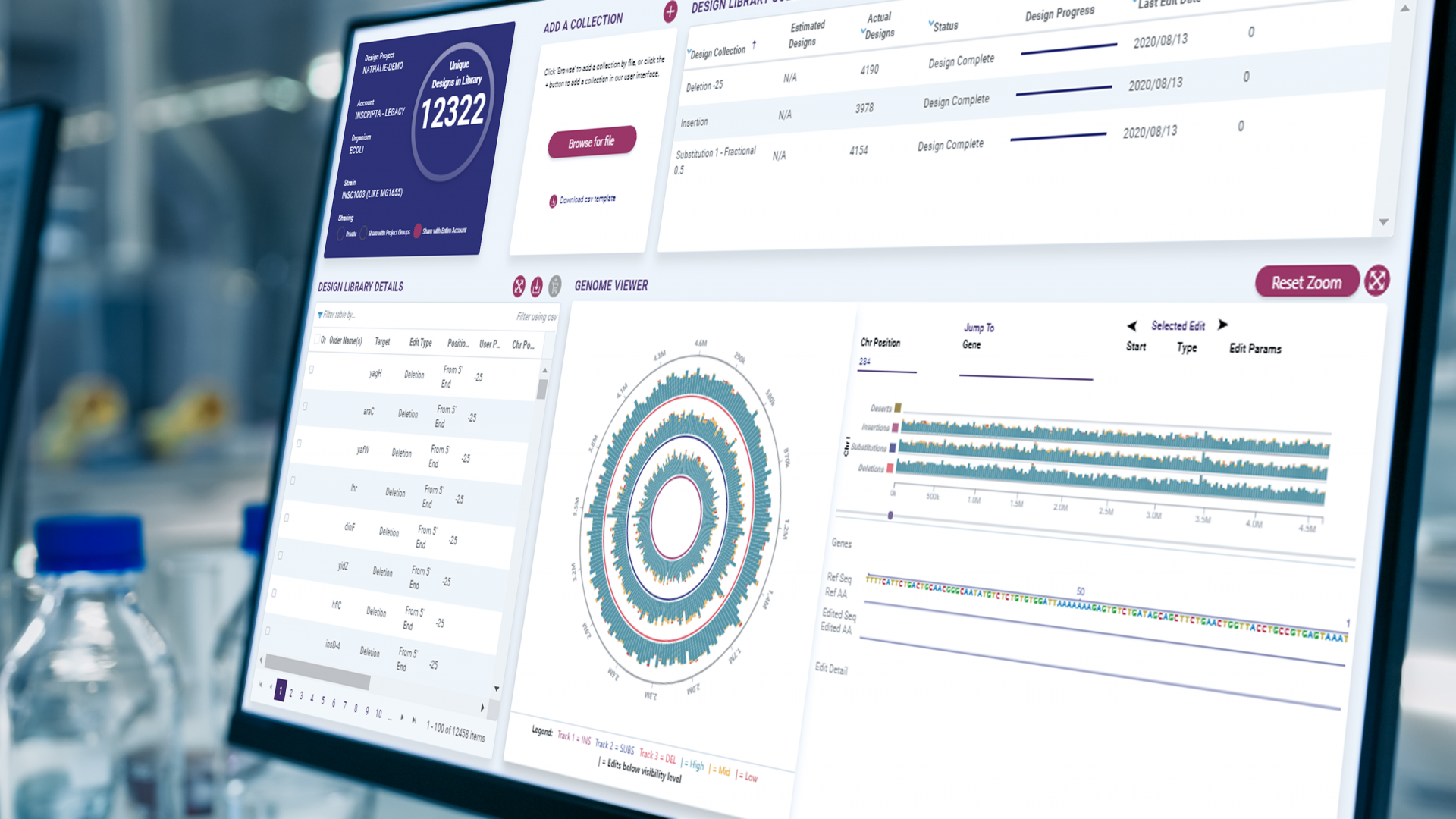Welcome to Genome-Scale Engineering
At Inscripta, we are passionate about enabling all biologists to perform gene editing experiments at the scale needed for true progress in fields ranging from healthcare to agriculture, energy to manufacturing.
Truly, CRISPR-based gene editing has the potential to transform our society in many profound ways. But it hasn’t delivered on this promise yet because current technologies are inadequate to address many compelling uses of genome engineering, even for experts in the field. In order to realize the full potential of CRISPR-based editing, scientists must be able to engineer more edit types, in multiple combinations, and at a far greater scale than is possible today.
That’s where we come in. Our Digital Genome Engineering platform provides genome-scale engineering using proprietary chemistry, instrumentation, and software to individually manage, engineer, and track genomic edits in individual cells. This allows researchers to focus their efforts on testing multiple biological hypotheses in parallel without having to spend significant time and resources on the laborious task of optimizing complex editing methods.
The ability to make tens to thousands of edits in a single round of experiments — including the introduction of single edits into cells for diversity generation or combinatorial edits to single genomes at population scales — gives scientists completely novel ways to approach genome engineering. Our Onyx™ platform automates the various aspects of a large-scale gene editing experiment, including staged delivery of gene editing reagents, cell transduction, cell partitioning, cell growth, and cell recovery. We believe that this automated, high-throughput platform will transform genome writing in many ways that mirror what next-generation sequencing has done for genome reading.
As of now, the Onyx platform can be used with two microbial strains — E. coli and S. cerevisiae — and we plan to expand to other organisms in the future. Early applications for this platform include target discovery and characterization, industrial strain engineering, and characterization of regulatory networks. These kinds of projects will be critical for innovation in healthcare, agriculture, discovery research, and bio-industrial materials and manufacturing.
We invite you to learn more or contact us with any questions.

